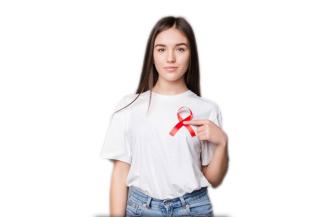
Breast cancer prevention involves a combination of lifestyle choices, early detection, and risk reduction strategies. While it's not always possible to completely eliminate the risk of breast cancer, there are several steps you can take to lower your risk:
- Maintain a Healthy Lifestyle:
- Eat a balanced diet rich in fruits, vegetables, whole grains, and lean proteins.
- Limit the consumption of processed foods, red meat, and sugary drinks.
- Maintain a healthy weight through regular exercise and a balanced diet.
- Limit alcohol consumption, as excessive alcohol intake is associated with an increased risk of breast cancer.
- Physical Activity:
- Engage in regular physical activity. Aim for at least 150 minutes of moderate-intensity exercise or 75 minutes of vigorous-intensity exercise per week.
- Breastfeeding:
- If you have the option, consider breastfeeding your children, as it may reduce the risk of breast cancer.
- Hormone Replacement Therapy (HRT):
- If you're considering HRT for menopausal symptoms, discuss the potential risks and benefits with your healthcare provider. Long-term use of some types of HRT can increase the risk of breast cancer.
- Family History and Genetic Testing:
- If you have a strong family history of breast cancer, consider genetic counseling and testing for BRCA1 and BRCA2 gene mutations or other genetic factors that increase your risk.
- Regular Breast Self-Exams and Clinical Screening:
- Perform regular breast self-exams to become familiar with your breasts and promptly report any changes to your healthcare provider.
- Schedule regular clinical breast exams with your healthcare provider.
- Depending on your age and risk factors, discuss mammography screening with your healthcare provider. Mammograms are effective tools for early detection.
- Lifestyle Factors:
- Avoid exposure to environmental toxins and chemicals that may be linked to breast cancer, such as BPA, phthalates, and pesticides.
- Minimize radiation exposure when possible.
- Medications for High-Risk Individuals:
- For individuals at high risk of breast cancer, your healthcare provider may recommend medications like tamoxifen or raloxifene to reduce risk. These should be considered after a thorough risk assessment.
- Education and Awareness:
- Stay informed about breast cancer risk factors, symptoms, and early detection methods.
- Encourage family and friends to be proactive about their breast health as well.
It's essential to consult with your healthcare provider to develop a personalized prevention plan based on your individual risk factors and medical history. Regular check-ups and screenings are crucial for early detection, which can significantly improve the chances of successful treatment if breast cancer is detected.






